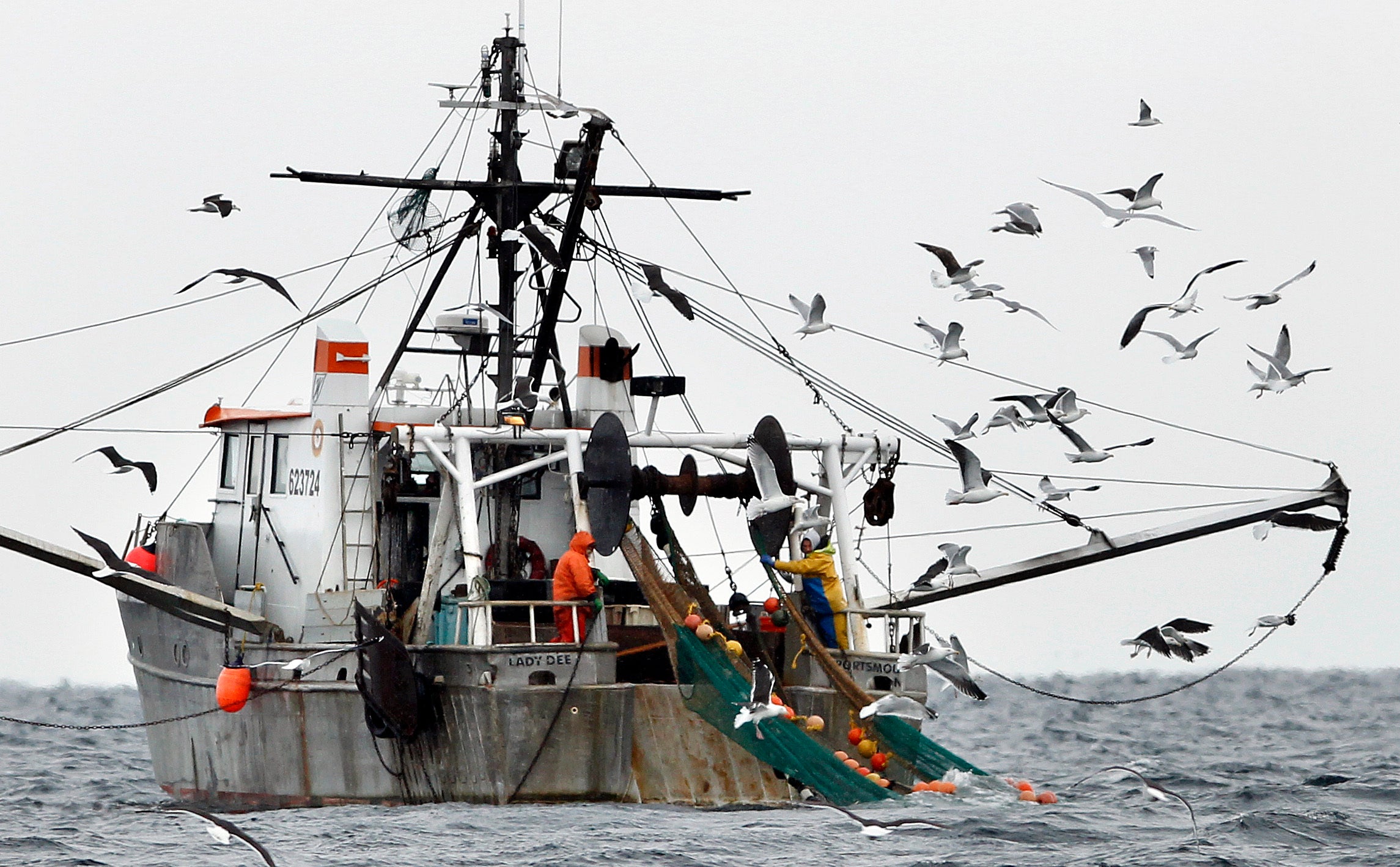Justices to consider case involving fishing boat monitor pay
The country’s highest court will take up the subject of who pays for workers who gather data aboard commercial fishing boats

The U.S. Supreme Court will take up the subject of who pays for workers who gather valuable data aboard commercial fishing boats.
Justices announced Monday that they will take the case, which stems from a lawsuit by a group of fishermen who want to stop the federal government from making them pay for the workers. The workers are tasked with collecting data on board fishing vessels to help inform rules and regulations.
The fishermen involved in the lawsuit harvest Atlantic herring, which is a major fishery off the East Coast that supplies both food and bait. Lead plaintiff Loper Bright Enterprises of New Jersey and other fishing groups have said federal rules unfairly require them to pay hundreds of dollars per day to contractors.
"Our way of life is in the hands of these justices, and we hope they will keep our families and our community in mind as they weigh their decision,” said Bill Bright, a New Jersey fisherman and plaintiff in the case.
The high court announced its decision to take the case via an order list that made no comment on the merits of the lawsuit. The fishermen previously lost in lower court rulings. Their lawsuit over fishing monitors is part of a long-standing fight between commercial fishing groups and the federal government over who pays for data collection and regulatory compliance.
Fishermen have argued that Congress never gave federal regulators authority to require the expense of paying for monitors.
Fisheries in the U.S. are regulated by the National Oceanic and Atmospheric Administration. A representative for NOAA declined to comment on the case. The agency does not typically comment on pending litigation.
Attorneys for the fishermen have said the case will directly confront the future of so-called “Chevron deference,” which is a legal principle that compels courts to defer to a federal agency’s interpretation of an unclear law. Conservative groups have long sought to challenge Chevron deference at the Supreme Court level.
The plaintiffs are represented by Cause of Action Institute, which advocates for limited government. They said in their petition to the high court that the monitors “take up valuable space on their vessels and oversee their operations,” and the payments make commercial fishing unsustainably expensive.
“That is an extraordinary imposition that few would tolerate on dry land,” the petition states.
The U.S. haul of Atlantic herring has fallen dramatically in recent years. Fishermen caught more than 100 million pounds of the fish as recently as 2017, but the 2021 catch was less than 11 million pounds. Much of the industry is based in Maine and Massachusetts.
NOAA has described the Atlantic herring stock as “overfished.” Fishermen of herring have been subject to quota cuts for the fish in recent years.
Bookmark popover
Removed from bookmarks